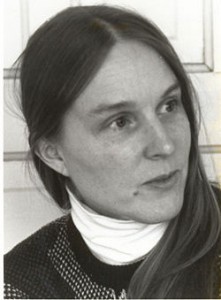In the past, poems often told a story. There are great narrative poems like the Odyssey or Beowulf, and many shorter examples up through the 1900s. But in the world of contemporary poetry, narrative is rare. Philip Levine’s work sometimes tells a story, I can think of a few poems of Ed Hirsch, and the famous poem “The Shirt,” by Robert Pinsky. You can probably think of others. But most of what we call poetry now is lyric verse, an image, an impression, a feeling, a puzzling through the complexities of daily life.
 Perhaps this is why this extraordinary poem by Brigit Pegeen Kelley that appears just to tell a story is so powerful. I say “appears” because this may be real or may not, but in either case is enhanced by the language of the telling:
Perhaps this is why this extraordinary poem by Brigit Pegeen Kelley that appears just to tell a story is so powerful. I say “appears” because this may be real or may not, but in either case is enhanced by the language of the telling:
The Dragon
The bees came out of the junipers, two small swarms
The size of melons; and golden, too, like melons.
They hung next to each other, at the height of a deer’s breast,
Above the wet black compost. And because
The light was very bright it was hard to see them,
And harder still to see what hung between them.
A snake hung between them. The bees held up a snake,
Lifting each side of his narrow neck, just below
The pointed head, and in this way, very slowly,
They carried the snake through the garden.
The snake’s long body hanging down, its tail dragging
The ground, as if the creature were a criminal
Being escorted to execution or a child king
To the throne. I kept thinking the snake
Might be a hose, held by two ghostly hands,
But the snake was a snake, his body green as the grass
His tail divided, his skin oiled, the way the male member
Is oiled by the female’s juices, the greenness overbright,
The bees gold, the winged serpent moving silently
Through the air. There was something deadly in it,
Or already dead. Something beyond the report
Of beauty. I laid my face against my arm, and there
It stayed for the length of time it takes two swarms
Of bees to carry a snake through a wide garden,
Past a sleeping swan, past the dead roses nailed
To the wall, past the small pond. And when
I looked up the bees and the snake were gone,
But the garden smelled of broken fruit, and across
The grass a shadow lay for which there was no source,
A narrow plinth dividing the garden, and the air
Was like the air after a fire, or the air before a storm,
Ungodly still, but full of dark shapes turning.
Brigit Pegeen Kelley
Interesting point. Your comparison to narratives and the epics of Homer made me watch as I read this one. Such a strange apparition. The poem has all the earmark language of a poem, you would know it as that if it was told to you and I don’t think a storyteller, they distinguish themselves from poets, would tell it using the figures she does that we expect in poetry. It makes me wonder about the, I don’t know what to call it, the poetic persona maybe. The poetic narrator is often quite uncharacteristic of any real person we know. Though the poet is a real person it’s like she channels something or puts on a special costume in order to express in a way what the regular person couldn’t. Hell, I don’t know. But it’s something.
I agree, the language of the story is poetic, whereas with Homer, for example, there are long passages of just story, then suddenly breath-taking poetry. I don’t know how exactly to characterize the diction that makes some language “poetic,” whether broken into lines or delivered as paragraphs.
plz make the narrative poem on that the poet is sitting on the garden and observing 4 to 6 kids playing